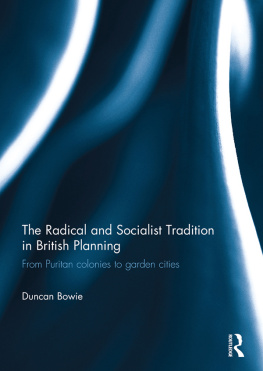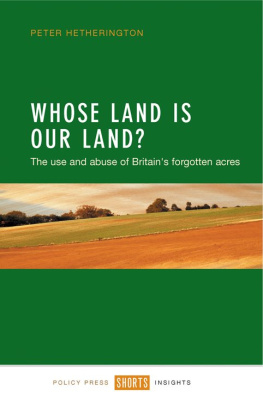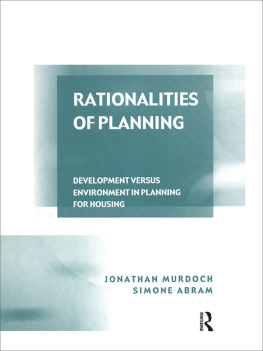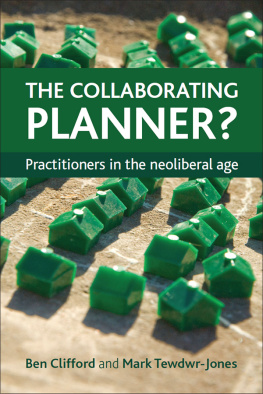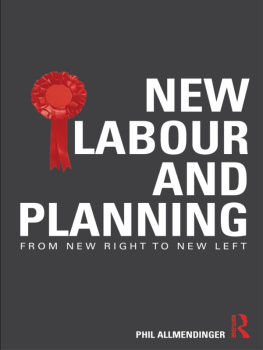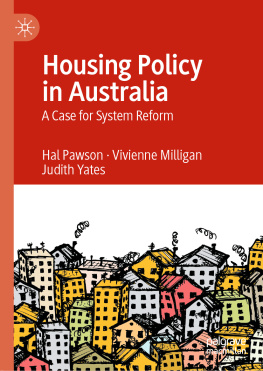The Radical and Socialist Tradition in British Planning
Focusing on the key period between the late 18th century and 1914, this book provides the first comprehensive narrative account of radical and socialist texts and organised movements for reform to land planning and housing policies in Britain. Beginning with the early colonial settlements in the Puritan and enlightenment eras, it also covers Benthamite utilitarian planning, Owenite and utopian communitarianism, the Chartists, late Chartists and the First International, Christian Socialists and positivists, working class and radical land reform campaigns in the late 19th century, Garden City pioneers and the institutionalisation of the planning profession.
The book, in effect, presents a prehistory of land, planning and housing reform in the UK in contrast with most historiography which focuses on the immediate pre-World War I period. Providing an analysis of different intellectual traditions and contrasting middle class-led reform initiatives with those based on working class organisations, the book seeks to relate historical debates to contemporary themes, including utopianism and pragmatism, the role of the state, the balance between local initiatives and centrally driven reforms and the interdependence of land, housing and planning.
Duncan Bowie is a senior lecturer in planning and housing at the University of Westminster, where he is course leader on the MA Urban and Regional Planning. He has worked in senior posts in housing and planning for the Mayor of London, the Housing Corporation, the London Docklands Development Corporation and London boroughs. He is a member of the policy council of the Town and Country Planning Association, as well as the executive committees of the London Labour Housing Group, the Socialist History Society and the London Society.
The Radical and Socialist Tradition in British Planning
From Puritan colonies to garden cities
Duncan Bowie
First published 2017
by Routledge
2 Park Square, Milton Park, Abingdon, Oxon OX14 4RN
and by Routledge
711 Third Avenue, New York, NY 10017
Routledge is an imprint of the Taylor & Francis Group, an informa business
2017 Duncan Bowie
The right of Duncan Bowie to be identified as author of this work has been asserted by her in accordance with sections 77 and 78 of the Copyright, Designs and Patents Act 1988.
All rights reserved. No part of this book may be reprinted or reproduced or utilised in any form or by any electronic, mechanical, or other means, now known or hereafter invented, including photocopying and recording, or in any information storage or retrieval system, without permission in writing from the publishers.
Trademark notice: Product or corporate names may be trademarks or registered trademarks, and are used only for identification and explanation without intent to infringe.
British Library Cataloguing-in-Publication Data
A catalogue record for this book is available from the British Library
Library of Congress Cataloging in Publication Data
Names: Bowie, Duncan, author.
Title: The radical and socialist tradition in British planning : from Puritan
colonies to garden cities / Duncan Bowie.
Description: Abingdon, Oxon ; New York, NY : Routledge, 2016. |
Includes bibliographical references and index.
Identifiers: LCCN 2016004020| ISBN 9781472479020 (hardback) |
ISBN 9781315553672 (ebook)
Subjects: LCSH: City planningGreat BritainHistory. | Regional
planningGreat BritainHistory. | Land useGreat Britain
PlanningHistory. | Urban policyGreat BritainHistory. |
Housing policyGreat BritainHistory.
Classification: LCC HT169.G7 B693 2016 | DDC 307.1/2160941dc23
LC record available at https://lccn.loc.gov/2016004020
ISBN: 978-1-472-47902-0 (hbk)
ISBN: 978-1-315-55367-2 (ebk)
Typeset in Sabon
by Florence Production, Stoodleigh, Devon, UK
I would like to thank numerous colleagues who have commented on drafts of this book at various stages: the late Sir Peter Hall who commented on an early outline, Michael Hebbert, Martin Crookston, Michael Edwards and Tony Manzi as well as the publishers anonymous referees. Hugh Ellis gave me access to the TCPAs attic and the short loan of some early volumes of the Garden Cities journal, while Gavin Parker escorted me into the RTPIs basement archive. I would like to thank Ron Heisler and Andrew Whitehead for information on the OBrienites, as well as my colleagues from the Socialist History Society for their interest in the project and invitation to give a talk on the subject of the book. My thanks go to the librarians of Southampton University and Warwick University in making available copies of unpublished MA dissertations. My thanks also go to those librarians and archivists who have digitised rare pamphlets, especially those of the British Library and the University of Michigan, to the reprint publishers of India and to second hand booksellers everywhere. I would also wish to acknowledge the proofreading services provided by my wife, Jackie, as well as guidance from my son, Chris, on rewriting the introduction, and the suggestion from my daughter Jenny that I should shorten my paragraphs and sentences. Finally, I would like to record my appreciation for the help of the editorial and production teams at Routledge, as well as copy editor Alice Stoakley, in assisting this text through the publication process.
Radicalism, socialism, planning and planning history
Many practitioners and commentators, including this author, take the view that planning has lost its way. In the British context, and more specifically within the planning regime in England, there is now little notion of a public purpose, and the role of planners is seen by government and by political and economic thinkers as primarily to enable the private market to respond to the challenges of growth. We have largely lost any concept of a social purpose for planning, and the success of planning practice is largely judged on whether planners have facilitated development in terms of contributing to economic growth, with little consideration of what could be termed as the wider public good. As a historian and a professional planner engaged in the development of planning policy as well as teacher of practising planners and potential planners, I have written this book on the presumption that knowledge of the history of planning can inform both academic discourse and planning practice.
In political theory and practice, planning has traditionally been associated with the left, or to be more precise, with a number of left traditions Fabian, social democratic and communist. Most of these traditions are perceived as centralist and state dominated. Other more pluralist traditions recognise that the state and planning can operate at a number of spatial levels international, national, regional, sub regional, local and neighbourhood level, and that a centralist perspective is not necessarily the most democratic. While anarchists may seek to limit or abolish the role of the central state, libertarian socialists generally accept the principles of subsidiarity that governance and planning should be undertaken at the most appropriate level which is closest to the individual and the community. This is the starting point for the federalist and pluralist traditions of socialism and an approach to planning which rejects centralised and by extension authoritarian decision making. In a context of localism, consumer choice and deregulation, the dominant paradigm across the contemporary political spectrum, planning is widely seen as out of step with current political thinking, both in practice and in dominant conceptualisations within contemporary political science. This book is therefore seeking to use the historical record as a basis for challenging the dominance of neo-liberal perspectives within contemporary discourse.

